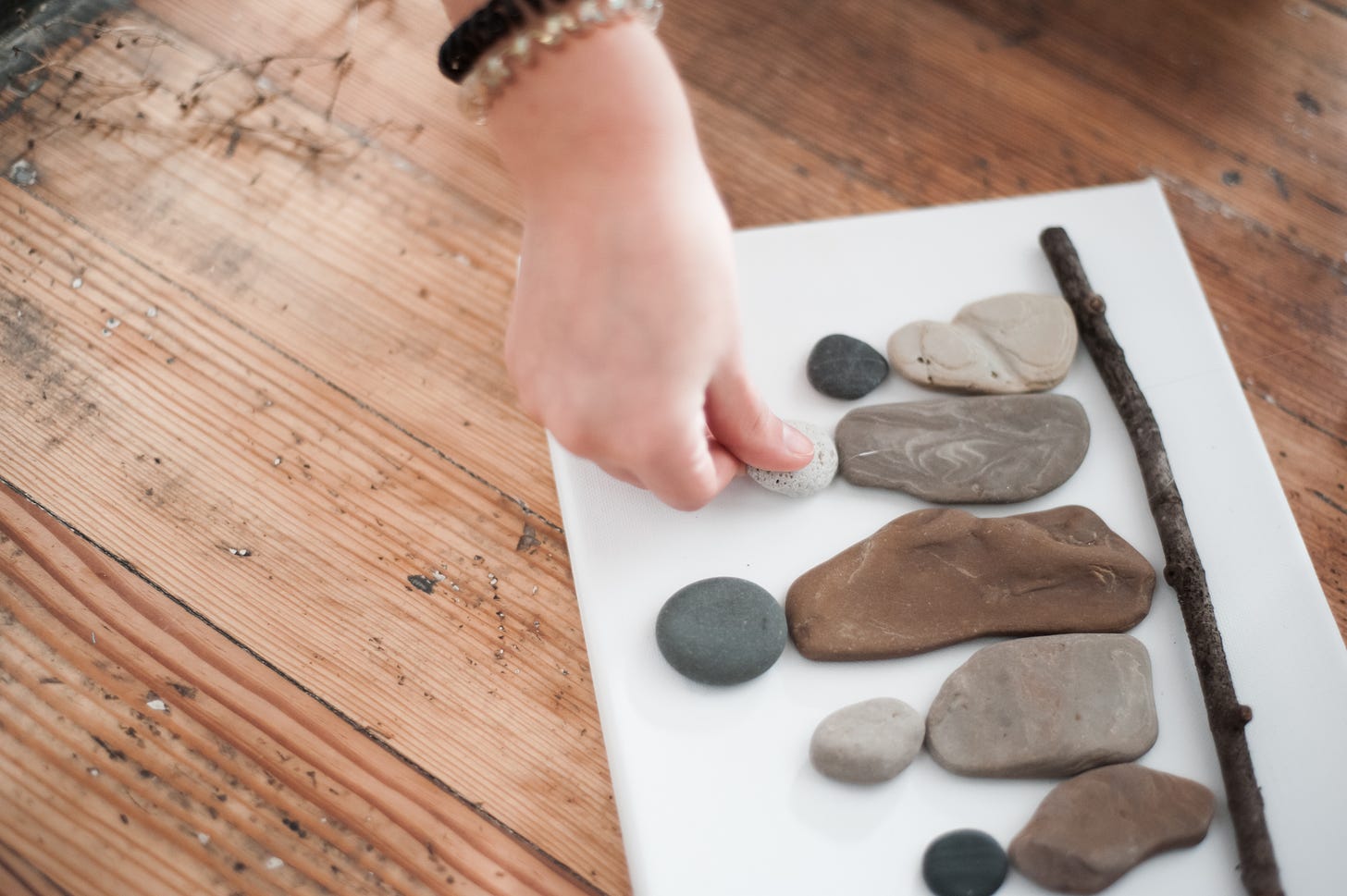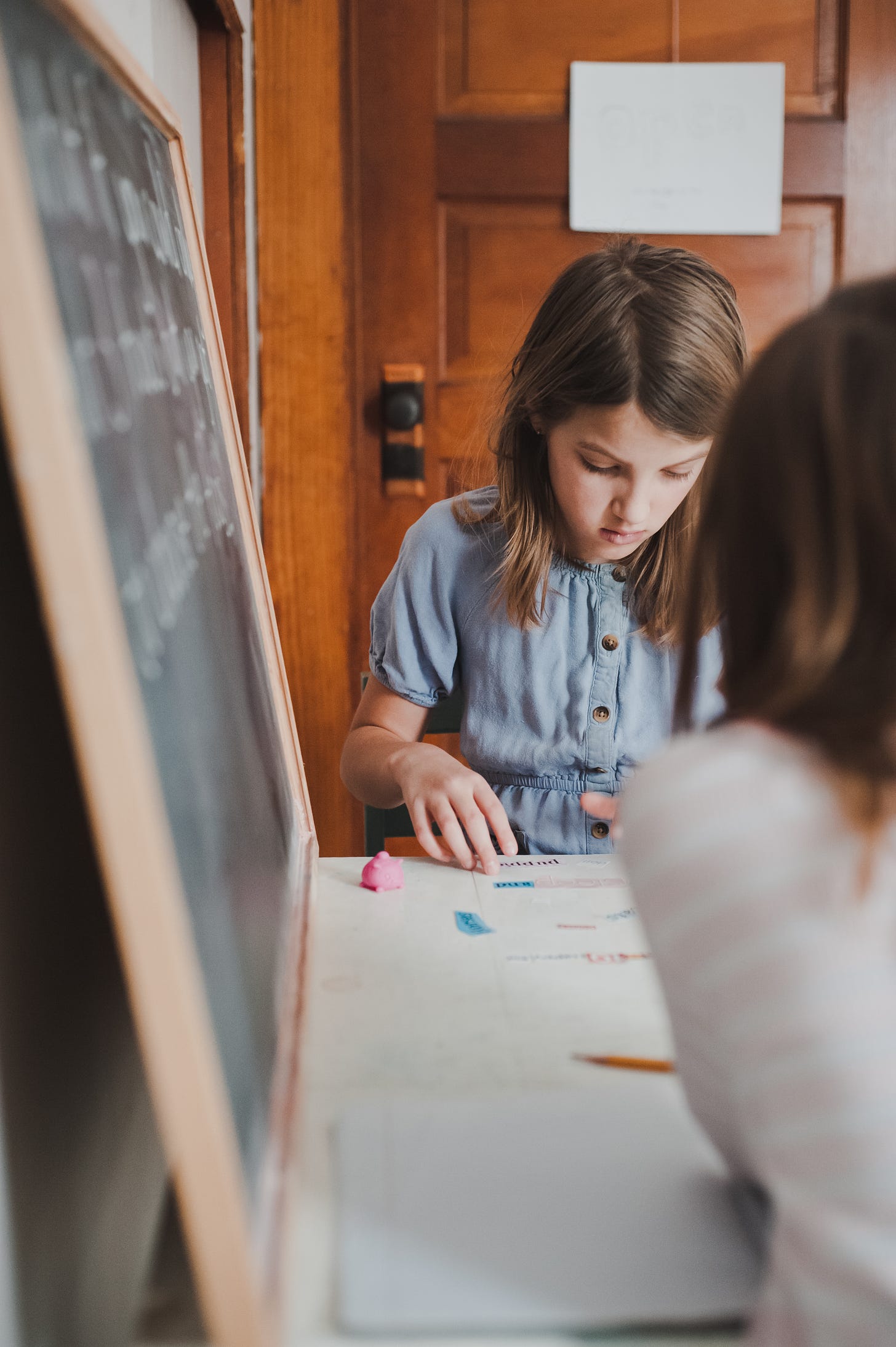When I first became a mother, I had a belief that it was my job to ensure my children turned out well and believed the same things I did. If I’m honest, this belief is still hard to fight at times. And as an over-achiever, once motherhood became my primary role, it was hard to not feel like their actions and beliefs were the best show of my performance.
It was Charlotte Mason, a wise woman and education philosopher of the early 20th century, that first encouraged my heart to see it otherwise. In her writings, she emphasizes that children are their own persons. They are not born as empty buckets that need filled in order to “become a real person”—rather, they are already individual, unique souls at the moment they are born.
Many times now, this seems obvious to me. My oldest daughter is strong-willed and stubborn, even though I am more gentle and a people pleaser. My second daughter loves make-up and fashion, and has since a very young age, even though I care little and know next-to-nothing about either.
Of course, I do believe life shapes us. But all of us have met children from the same families, with the same experiences, who turned out completely differently. Our unique personhood is what influences how we respond to the life we are given. As children, when we are more impressionable and more vulnerable, we may respond in a way that isn’t true to our souls, and it can take years to find who we truly are. But at our core, we are unique people. And this is the same for our children.
When first learning about how Charlotte Mason recommended homeschooling, I read her suggestion that we don’t tell our children what to think or believe. We don’t preach at them. Instead, whether we’re reading a history book, a piece of literature, or even the Bible, we simply read them the book, and then we let them tell us in their own words what the book means.
I was uncomfortable with this at first. How would I ensure my child got the right message if I didn’t tell them the right message?
In time, I have learned that this thought is one of seeking to have control. It’s also a prideful thought—one that assumes I have the right answers for everything. Certainly, there are things I know because of time and experience that my children don’t yet. I do believe I have a role to guide my children toward love and good deeds, truth and beauty. But I can’t ensure what my children will believe or how they will turn out, even if I do tell and preach to them all of the things.
Charlotte Mason’s bottom line belief was this: Unless children make something their own—see it on their own without being told—it’s not really their belief anyway. We can preach at them until we’re blue in the face, and they could probably even parrot back to us what we’ve insisted is the right message, but if they didn’t come to it on their own, if they don’t believe it in their soul that this is the message, then the things we tell them won’t stick with them in the long run.
Ultimately, what we must learn as parents is that our children are not our progress reports. What they believe and how they act is not a reflection of who we are as parents. And who they are is not our chance to pat ourselves on our back or to throw ourselves into the abyss of despair.
When we can let go of this idea that our children will influence how others see us, then we can let go of our control in trying to create our children into a certain outcome. This is a critical part of parenting. Others will judge us in our parenting, to be sure, but that isn’t our business. Our business is to raise our kids in a healthy and holistic way that honors them.
I take my job of being a mom very seriously. Anyone who knows me will affirm this. I do believe that our parenting and the environment we provide for our children can deeply impact who they become. But the best things we provide for our children are love and stability. This is where we should place our focus.
Let them explore ideas. Let them try and fail. Allow them to teach you. Let them disagree with you. Allow them to mess up. Let them voice their wants and desires. Allow them to express themselves.
I love having conversations with my children. Currently my daughters range in age from seven to twelve, and I have a five-year-old stepson as well. My conversations with each of them look different as they are at different ages and have different personalities, but my goal is always a conversation over teaching at them.
This means that I do tell them what I think and believe, but I don’t force them to think and believe the same things. I let them know that this is my opinion/belief, but that there are other ways to see it as well (and I usually share what these are). Yes, this even includes with my faith. Children deserve to know that not everyone believes as their family does. This also gives them an understanding for others and will allow them to interact with other children who believe differently than they do in a more loving manner.
Guide your children faithfully. Love them well. Engage in meaningful and open conversations. And then trust them to forge their own path in this world.






Beautifully written! Some great takeaways here. Thankyou for sharing. 😊